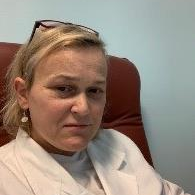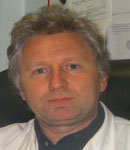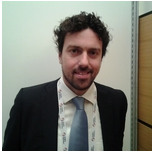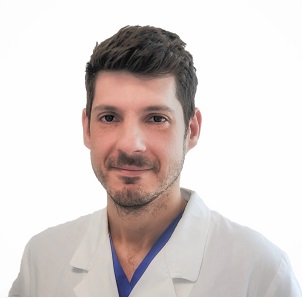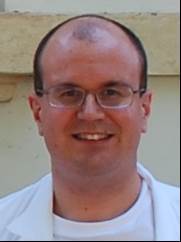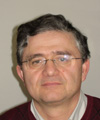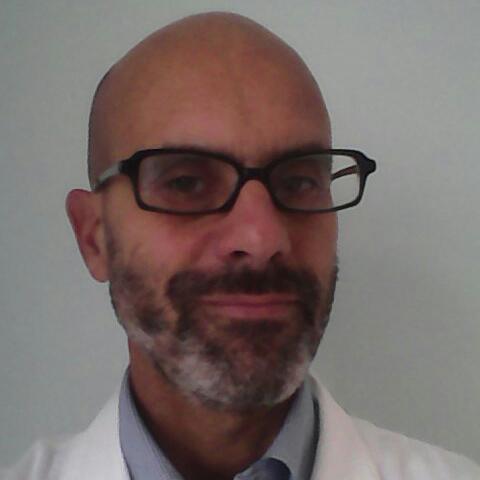Studying at the University of Verona
Here you can find information on the organisational aspects of the Programme, lecture timetables, learning activities and useful contact details for your time at the University, from enrolment to graduation.
Academic calendar
The academic calendar shows the deadlines and scheduled events that are relevant to students, teaching and technical-administrative staff of the University. Public holidays and University closures are also indicated. The academic year normally begins on 1 October each year and ends on 30 September of the following year.
Course calendar
The Academic Calendar sets out the degree programme lecture and exam timetables, as well as the relevant university closure dates..
| Period | From | To |
|---|---|---|
| INF VI - 1° anno 1° sem | Oct 1, 2019 | Dec 20, 2019 |
| INF VI - 2° anno 1° sem | Oct 1, 2019 | Dec 20, 2019 |
| INF VI - 3° anno 1° sem | Oct 14, 2019 | Dec 20, 2019 |
| INF VI - 3° anno 2° sem | Feb 3, 2020 | Mar 27, 2020 |
| INF VI - 1° anno 2° sem | Feb 3, 2020 | Apr 3, 2020 |
| INF VI - 2° anno 2° sem | Apr 27, 2020 | Jun 26, 2020 |
| Session | From | To |
|---|---|---|
| INF VI - sessione invernale | Jan 7, 2020 | Jan 29, 2020 |
| INF VI - sessione estiva (3° anno 1^ parte) | Mar 30, 2020 | Apr 16, 2020 |
| INF VI - sessione estiva (1° anno 1^ parte) | Apr 6, 2020 | Apr 23, 2020 |
| INF VI - sessione estiva (2° anno) | Jul 6, 2020 | Jul 31, 2020 |
| INF VI - sessione estiva (1° anno 2^ parte) | Jul 13, 2020 | Jul 31, 2020 |
| INF VI - sessione estiva (3° anno 2^ parte) | Jul 20, 2020 | Jul 31, 2020 |
| INF VI - sessione autunnale | Sep 1, 2020 | Sep 25, 2020 |
| Session | From | To |
|---|---|---|
| 1^ SESSIONE | Oct 1, 2020 | Nov 30, 2020 |
| 2^ SESSIONE | Mar 1, 2021 | Apr 30, 2021 |
| Period | From | To |
|---|---|---|
| FESTIVITA' OGNISSANTI | Nov 1, 2019 | Nov 1, 2019 |
| FESTIVITA' IMMACOLATA CONCEZIONE | Dec 8, 2019 | Dec 8, 2019 |
| Vacanze di Natale | Dec 24, 2019 | Jan 6, 2020 |
| VACANZE DI PASQUA | Apr 10, 2020 | Apr 15, 2020 |
| FESTA DELLA LIBERAZIONE | Apr 25, 2020 | Apr 25, 2020 |
| FESTIVITA' DEL LAVORO | May 1, 2020 | May 1, 2020 |
| FESTA DELLA REPUBBLICA | Jun 2, 2020 | Jun 2, 2020 |
| Description | Period | From | To |
|---|---|---|---|
| INF VI - tirocinio 2° anno 1^ esp | INF VI - tirocinio 2° anno 1^ esp | Feb 3, 2020 | Mar 6, 2020 |
| INF VI - tirocinio 2° anno 2^ esp | INF VI - tirocinio 2° anno 2^ esp | Mar 16, 2020 | Apr 24, 2020 |
| INF VI - tirocinio 3° anno 1^ esp | INF VI - tirocinio 3° anno 1^ esp | Apr 17, 2020 | May 29, 2020 |
| INF VI - tirocinio 1° anno 1^ esp | INF VI - tirocinio 1° anno 1^ esp | Apr 27, 2020 | May 29, 2020 |
| INF VI - tirocinio 3° anno 2^ esp | INF VI - tirocinio 3° anno 2^ esp | Jun 8, 2020 | Jul 17, 2020 |
| INF VI - tirocinio 1° anno 2^ esp | INF VI - tirocinio 1° anno 2^ esp | Jun 8, 2020 | Jul 10, 2020 |
| INF VI - tirocinio 2° anno 3^ esp | INF VI - tirocinio 2° anno 3^ esp | Sep 1, 2020 | Oct 2, 2020 |
| INF VI - tirocinio 3° anno 3^ esp | INF VI - tirocinio 3° anno 3^ esp | Sep 1, 2020 | Oct 9, 2020 |
Exam calendar
Exam dates and rounds are managed by the relevant Medicine Teaching and Student Services Unit.
To view all the exam sessions available, please use the Exam dashboard on ESSE3.
If you forgot your login details or have problems logging in, please contact the relevant IT HelpDesk, or check the login details recovery web page.
Should you have any doubts or questions, please check the Enrollment FAQs
Academic staff
 maribedin@libero.it
maribedin@libero.it
 michele.bertani@univr.it
michele.bertani@univr.it
Cunico Laura
 laura.cunico@univr.it
laura.cunico@univr.it
 chiara.gnata@libero.it
chiara.gnata@libero.it
 jessica.longhini@univr.it
jessica.longhini@univr.it
 massimo.manfridi@univr.it
massimo.manfridi@univr.it
 loredana.pancheri@univr.it
loredana.pancheri@univr.it
 rafaella.visona@univr.it
rafaella.visona@univr.it
Study Plan
The Study Plan includes all modules, teaching and learning activities that each student will need to undertake during their time at the University.
Please select your Study Plan based on your enrollment year.
1° Year
| Modules | Credits | TAF | SSD |
|---|
Professional Laboratories (1st year)
2° Year activated in the A.Y. 2020/2021
| Modules | Credits | TAF | SSD |
|---|
Professional Laboratories (2nd year)
3° Year activated in the A.Y. 2021/2022
| Modules | Credits | TAF | SSD |
|---|
Professional Laboratories (3rd year)
| Modules | Credits | TAF | SSD |
|---|
Professional Laboratories (1st year)
| Modules | Credits | TAF | SSD |
|---|
Professional Laboratories (2nd year)
| Modules | Credits | TAF | SSD |
|---|
Professional Laboratories (3rd year)
Legend | Type of training activity (TTA)
TAF (Type of Educational Activity) All courses and activities are classified into different types of educational activities, indicated by a letter.
General and methodological nursing (2019/2020)
The teaching is organized as follows:
Learning outcomes
The course is focused on the fundamentals of general and clinical nursing in relation to the concepts of care and caring for the person and family, to the deontological principles that inspire and guide nursing practice. It provides conceptual and methodological bases for identifying nursing care needs, planning interventions and assessing outcomes. The students will develop skills in data collection through observation, interview and physical examination, in the analysis and understanding of the events reported by patients; will acquire the methodological basis for the assessment of problems or risks also through the use of assessment scales or tools to make decisions and propose prevention, treatment and monitoring interventions with respect to the needs and problems of the person. FUNDAMENTALS OF NURSING: The course introduces the student to the basic fundamentals of general and clinical nursing in relation to the concepts of health, illness, care and caring for the person and the family, to the deontological principles that inspire and guide the practice of care. NURSING CLINICAL METHODOLOGY The course aims to provide knowledge and skills related to the clinical methodology for identifying and managing nursing care needs, with particular reference to the use of assessment and monitoring methods and tools, the planning of interventions and the assessment of outcomes. Students will acquire these skills with regard to: nutritional status and alterations (obesity, cachexia, malnutrition); walking, exercise and mobility deficits; vital parameters, thermoregulation and changes in body temperature (fever and hypothermia); body care (body and oral hygiene) and self-care deficits. BASIC OF NURSING IN SURGICAL CARE: the course is aimed at learning the clinical method and the contents of preoperative surgical care, such as preoperative information and consent to the intervention, evaluation of the operative and infectious risk and physical preparation for the different types of intervention. The fundamental aspects of caring in the immediate post-operative phase will be treated, such as surveillance and monitoring, wound and drainage management, recovery of nutrition, ileus and early mobilization
Program
------------------------
MM: INFERMIERISTICA GENERALE
------------------------
Health and Disease: analysis of concepts according to the bio-psycho-social model and implications for nursing practice. - Evolution of health concept, - Determinants of health, risk factors, - Preventive measures, - Health education. - Acute and chronic disease - Meaning of illness and disease, - Experiences and reactions to disease. The theoretical foundations of the caring Historical evolution of nursing concept and Nursing theories - The origin of Cure - Nursing "Caring": principles and actions: - centrality of the patient and the family, - presence, - comfort, - intimacy and touch - vigilance/surveillance, - self-determination, The process of Nursing professionalization Historical evolution of nursing profession in Italy Legislative sources of acting professional, the principles and ethics that guide the care model , with particular reference to: - Profilo Professionale dell'Infermiere - Codice Deontologico The places of care and the organization of the National Health Service.
------------------------
MM: METODOLOGIA CLINICA INFERMIERISTICA
------------------------
Syllabus The principles of an healthy diet, the data needed to evaluate nutritional status (eating habits, anthropometric data, laboratory tests), the alterations of the nutritional function (obesity, overweight, and malnutrition), the principles to assist a person during the recruitment of the meal; Principles of a good sleep habit, physiologic effects of spleeping, the interventions to manage the person with sleep disorders (legs without resting, apnoeas night, insomnia in the elderly, the factors that hinder the sleep in the hospital (noise in environments of care). Principles of a healthy mobility, physical exercise and alterations. Definitions of physical exercise, tolerance, sedentary lifestyle, mobility. The principles in the measurement of vital signs (blood pressure, pulse, respiration rate, pulse oximetry, and body temperature), measurement mode, normal values and definition of alterations. The main alterations of thermoregulation (hyperpyrexia, hyperthermia hypothermia) and being able to identify the nursing’s care to the person with a fever. The prevention and treatment of bedsores.
------------------------
MM: ASSISTENZA CHIRURGICA GENERALE
------------------------
Main objectives and helpful interventions in the pre-surgery phase: - To give preoperative informations to get the surgical agreement from the patient; - to evaluate the type of surgery and the risk of surgical site infection pre- - surgical nursing preparation: preoperative showering and hair removal, oral hygiene, bowel preparation, food recommendations; - to prevent thromboembolic complications,; - to consider the patient’s space and intimacy Main objectives and helpful interventions in the postoperative period: - postoperative mobilization and vigilance, the resumption of peristalsis and food habits; - to manage wound dressing and drainagewound’s and drainage’s manegement
Bibliography
| Author | Title | Publishing house | Year | ISBN | Notes |
|---|---|---|---|---|---|
| Saiani, L., Brugnolli, A. | Trattato di cure infermieristiche (Edizione 3) | Idelson-Gnocchi | 2020 | 978-88-7947-576-1 | |
| Zannini Lucia | Il corpo-paziente | Franco Angeli | 2004 | ||
| Zannini L. | Salute, Malattia e Cura | F. Angeli, Milano | 2001 | ||
| Luisa Saiani, Anna Brugnolli | Trattato di cure infermieristiche (Edizione 2) | Sorbona | 2014 | ||
| Saiani L., Brugnolli A. | Trattato di cure infermieristiche | Idelson Gnocchi, Napoli | 2020 |
Examination Methods
------------------------
MM: INFERMIERISTICA GENERALE
------------------------
Written exam with closed questions with multiple choice answers and oral exam. The exam will cover all the topics that are being planned. Questions will be asked to evaluate the level of acquired knowledge, the ability to argue and the ability to apply content to case-situations. The written exam is preliminary to the oral interview: only students who are sufficiently qualified to attend the oral exam are admitted to the oral exam.
------------------------
MM: METODOLOGIA CLINICA INFERMIERISTICA
------------------------
Written exam with closed questions with multiple choice answers and oral exam. The exam will cover all the topics that are being planned. Questions will be asked to evaluate the level of acquired knowledge, the ability to argue and the ability to apply content to case-situations. The written exam is preliminary to the oral interview: only students who are sufficiently qualified to attend the oral exam are admitted to the oral exam.
------------------------
MM: ASSISTENZA CHIRURGICA GENERALE
------------------------
Writing Test and oral test
Career prospects
Module/Programme news
News for students
There you will find information, resources and services useful during your time at the University (Student’s exam record, your study plan on ESSE3, Distance Learning courses, university email account, office forms, administrative procedures, etc.). You can log into MyUnivr with your GIA login details: only in this way will you be able to receive notification of all the notices from your teachers and your secretariat via email and soon also via the Univr app.
Gestione carriere
Orario lezioni
Si invitano gli studenti a prendere visione dei possibili aggiornamenti.
Indicazioni per l'iscrizione alla pagina moodle degli insegnamenti per il 1° anno
Si pubblica la programmazione annuale dell'attività didattica e tirocinio per l'anno accademico 2023-2024
AGGIORNAMENTO 25 MARZO 2024 Calendario lezioni 1°A. 2° semestre A.A. 2023/2024
AGGIORNAMENTO 15 APRILE 2024 Calendario lezioni 3° anno 2° semestre A.A 2023/2024
Documents
| Title | Info File |
|---|---|
|
|
pdf, it, 70 KB, 15/04/24 |
|
|
pdf, it, 49 KB, 25/03/24 |
|
|
pdf, it, 528 KB, 13/07/23 |
|
|
pdf, it, 8849 KB, 13/10/22 |
Guida ai programmi degli insegnamenti
Guida ai programmi degli insegnamenti
Documents
| Title | Info File |
|---|---|
|
|
pdf, it, 1594 KB, 12/12/22 |
|
|
pdf, it, 1310 KB, 02/09/21 |
Graduation
Documents
| Title | Info File |
|---|---|
|
|
pdf, it, 242 KB, 19/01/24 |
|
|
pdf, it, 80 KB, 06/04/24 |
|
|
pdf, it, 43 KB, 06/04/24 |
|
|
pdf, it, 44 KB, 09/04/24 |
|
|
pdf, it, 148 KB, 06/04/24 |
|
|
pdf, it, 108 KB, 06/04/24 |
|
|
pdf, it, 115 KB, 06/04/24 |
|
|
pdf, it, 1487 KB, 18/02/22 |
|
|
pdf, it, 437 KB, 22/03/24 |
|
|
pdf, it, 957 KB, 22/03/24 |
|
|
pdf, it, 424 KB, 19/01/24 |
Linee guida per riconoscimento cfu
Lo studente che intende chiedere il riconoscimento di moduli o insegnamenti pregressi dovrà presentare domanda, entro il 30 novembre dell’anno accademico in corso, seguendo le indicazioni indicate al link seguente: https://www.univr.it/it/i-nostri-servizi/segreterie-studenti/gestione-carriere-studenti-medicina-e-chirurgia/riconoscimento-crediti-acquisiti-da-una-carriera-pregressa-medicina
Documents
| Title | Info File |
|---|---|
|
|
pdf, it, 295 KB, 09/11/21 |
Appelli d'esame
AGGIORNAMENTO 11 MARZO calendario appelli d'esame di APRILE 2024 per il 1° Anno
AGGIORNAMENTO 4 MARZO calendario appelli d'esame di MAGGIO 2024 per il 3° Anno
Documents
| Title | Info File |
|---|---|
|
|
pdf, it, 190 KB, 11/03/24 |
|
|
pdf, it, 194 KB, 04/03/24 |
|
|
pdf, it, 196 KB, 11/01/24 |
Student login and resources
Attività didattiche regime part-time
Modalità di richiesta
La domanda di iscrizione part-time può essere presentata all'inizio di ogni anno accademico e comunque entro il 30 novembre di ogni anno. Entro lo stesso termine, se necessario, lo studente potrà richiedere di tornare al regime full-time. Al link seguente la pagina del servizio https://www.univr.it/it/i-nostri-servizi/segreterie-studenti/flessibilita-nella-frequenza-dei-corsi/possibilita-di-iscrizione-part-time-e-ripristino-full-time
Una volta inviata la domanda, lo studente concorda in via preventiva con il Coordinatore della didattica professionale (CDP), il piano di studi che intende perseguire nel periodo di part-time compilando il modulo in allegato
Documents
| Title | Info File |
|---|---|
|
|
octet-stream, it, 1309 KB, 21/10/22 |

 +39 045 8128275
+39 045 8128275


